Summary
Co-organized by the Non-communicable Diseases (NCD) Alliance, UN Development Programme (UNDP), World Health Organization (WHO), and the International Institute for Sustainable Development (IISD), the Planetary Health Dialogue aimed to support exchange between the environment and health communities on the linkage between climate change and NCDs, present existing and novel strategies to accelerate action towards planetary health, and identify windows of opportunity to implement measures across the two sectors.
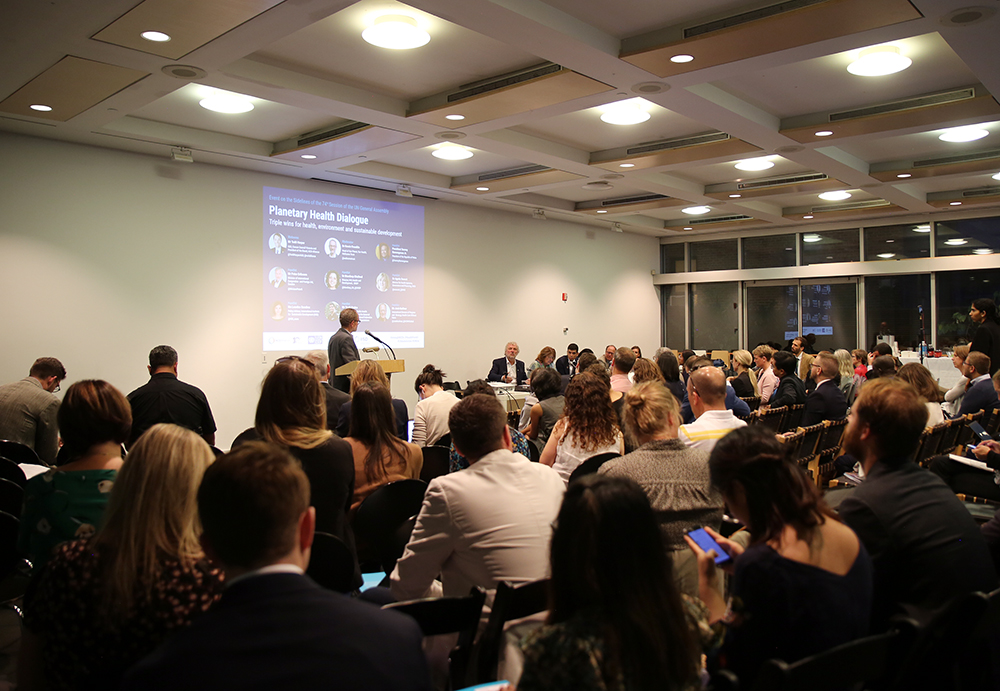
View of the room during the dialogue
Highlights
- Climate change and air pollution are fundamental threats to security and health, with air pollution causing 7 million premature deaths annually worldwide.
- Governments should treat fossil fuels in the same way they treated tobacco – as the root cause of a global health crisis.
- While the linkages between climate change and health have been discussed for four decades, there are still too few policy makers that understand them sufficiently to take action.
- If we do not avert the climate crisis, malaria and other diseases caused by infectious agents will rapidly spread across the entire world as climate change makes earth less habitable for humans and more habitable for infectious agents.
Todd Harper, President of the NCD Alliance, outlined health impacts of climate change and stated that air pollution is responsible for 7 million premature deaths annually worldwide. Noting that climate change and air pollution are fundamental health and security threats, he invited participants to share lessons learned on how to protect the planet and people at the nexus of environment and health.
Panel Discussion
Howard Frumkin, Head, Our Planet, Our Wealth Programme, Wellcome Trust, moderated a panel discussion on NCD and climate change.
Tommy Remengesau Jr., President, Palau, explained how climate change is causing an obesity crisis in Palau because diminishing fish stocks are increasing the dependence of Palauans on less healthy imported food. He reported that Palau has set aside 70% of its exclusive economic zone as no-take zone to allow fish stocks to recover.
Peter Eriksson, Minister of International Cooperation and Foreign Aid, Sweden, said that while the linkages between climate change and health have been discussed for four decades, there are still too few policy makers that understand them sufficiently to take action.
Mandeep Dhaliwal, Director, HIV, Health, and Development, UN Development Programme (UNDP), called for more collaboration between UN organizations, highlighting UNDP’s work to help countries integrate health into their nationally determined contributions (NDCs) under the Paris Agreement on climate change.
Agnés Soukat, Director for Health Systems, Governance and Financing, WHO, described the theory and practice of health taxes, calling them third-generation fiscal instruments that shape markets and change behavior rather than raising funds for government or redistributing income. Noting that health costs have been increasing faster than average GDP growth, she suggested that health taxes can both improve health and reduce costs caused by NCDs.
Lourdes Sanchez, Policy Advisor, IISD, outlined the rationale for the report titled “Burning Problems, Inspiring Solutions: Sharing Lessons on action against tobacco and fossil fuels,” which argues that governments should treat fossil fuels in the same way they treated tobacco – as the root cause of a global health crisis. She explained that fossil fuels resemble tobacco in that they cause air pollution, involve global scale industries, and have similar addictive effects, noting that, like nicotine addiction, dependence on fossil fuels makes it difficult to reduce consumption.
Tarek Ezzine, Liaison to Public Health, International Federation of Medical Students Associations (IFMSA), said he believes that universal health coverage, halting climate change, and saving the environment can be achieved together because youth is beginning to demand radical change. He said he is supporting the inclusion of climate change in health curricula to enable him to become a socially responsible doctor.
Josh Karliner, International Director of Program and Strategy, Health Care Without Harm, noted that the first report evaluating the carbon footprint of the health system revealed that if health care was a country, it would be the world’s fifth largest emitter. He underscored that the voice of health professionals and health students is essential in reducing the health system’s carbon footprint and helping address climate change.
Participants discussed inter alia: the strong positive effects of improving air quality on health; the strong relation between a healthy natural environment and good mental health; and the need to prioritize biodiversity and water under the planetary health discussion. Others highlighted the primacy of political will among drivers for change. They also discussed the vulnerability of hospitals to climate change and if climate change vulnerability is analyzed by donor countries and development agencies before deciding about funding allocations.
Report Presentation
Josh Goldstein, Bridge Collaborative Director, The Nature Conservancy, presented the report “Bigger Change Faster: Integrated Development, Health, and Environment Actions for a Sustainable Future.” The report calls for greater integrated action to address three planetary health challenges: accelerating a low carbon, clean air, and environmentally friendly energy future for all; transforming the global food system for health and sustainability; and expanding sanitation and wastewater treatment to benefit people and nature. He announced the launch of the Bridge Spark Fund, a competition open now to advance solutions to these planetary health challenges.
Nandita Murukutla, Vice President, Global Policy and Research, Vital Strategies, presented a preview of the report “Fueling an Unhealthy Future: How propping up unhealthy industries will sicken millions and cost trillions,” which explores government incentives for a wide array of industries that are the main drivers of NCDs. Noting that up to 50% of global government expenditure on health is spent to tackle the health effects of air pollution, she called for fiscal policies that can act as behavior regulators.
Interview
In an interview with Frumkin, Poorvabrabha Patil, Vice President, Medical Students Association of India, noted the very visible effects of deteriorating planetary health on the reduction of the age when NCDs are triggered in India. She highlighted that anyone who borrows a place to live and breathe from the planet should become a climate activist. She emphasized that if we do not advert the climate crisis, malaria and other diseases caused by infectious agents will rapidly spread across the entire world, because due to climate change “we make earth less habitable for us and more habitable for infectious agents.”
Providing concluding remarks, Frumkin said participants inter alia highlighted the importance of cost-benefit analyses to drive actions and inform policies on climate change and health, subsidies and fiscal policies, and institutional reform to facilitate cross-sectoral approaches.
Photos by IISD/ENB | Francis Dejon
For photo reprint permissions, please follow instructions at our Attribution Regulations for Meeting Photo Usage Page.
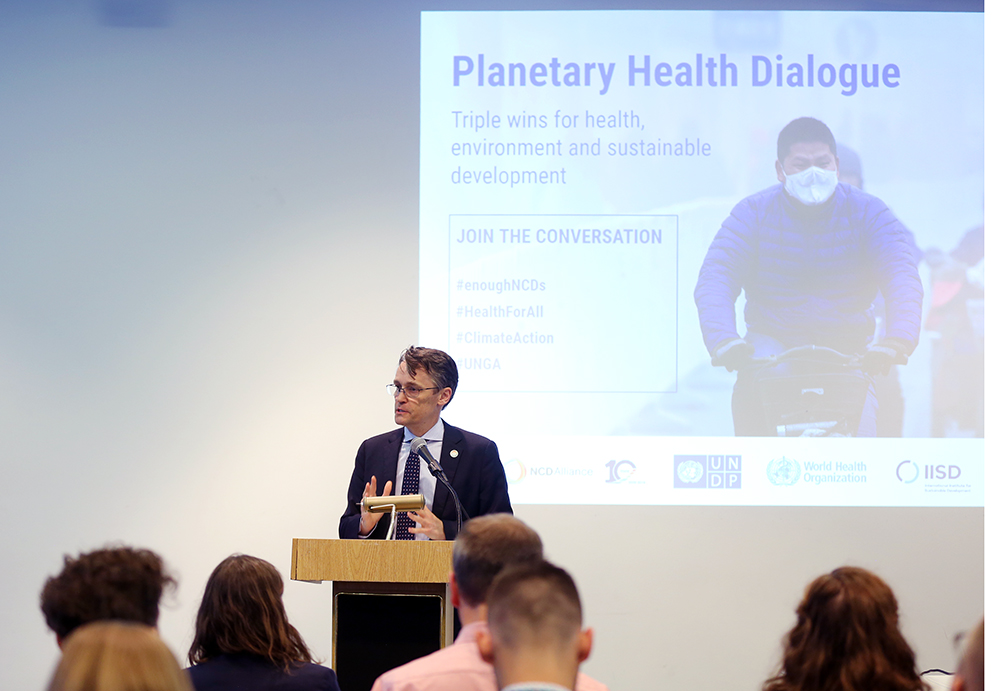
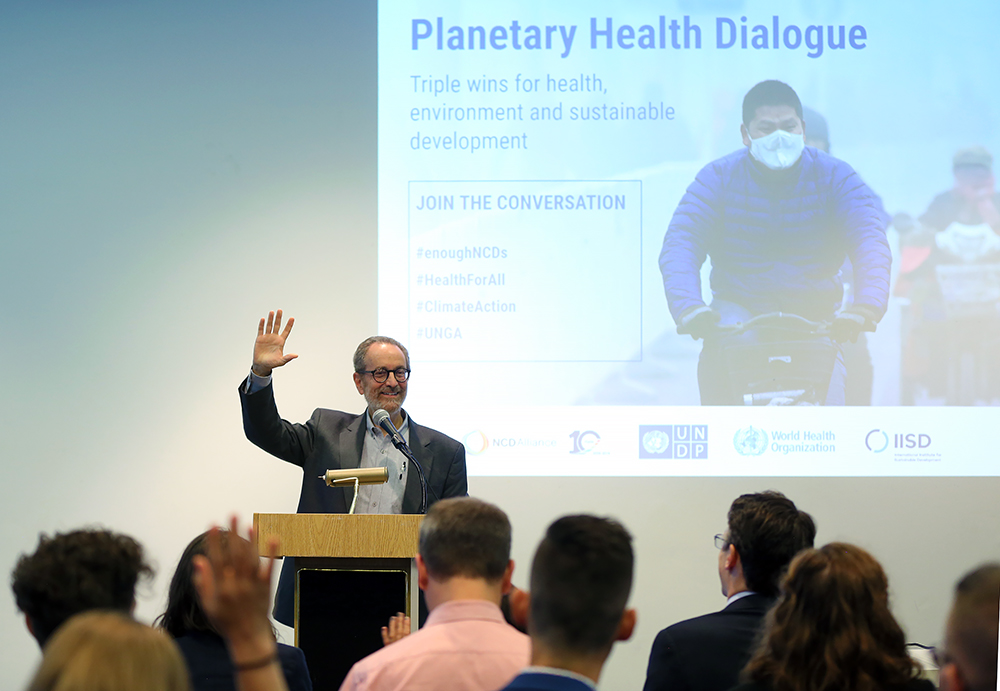
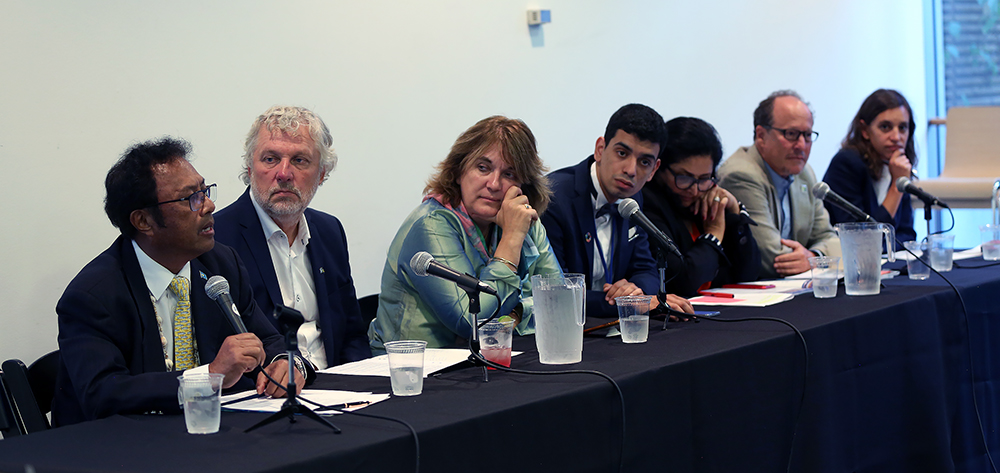
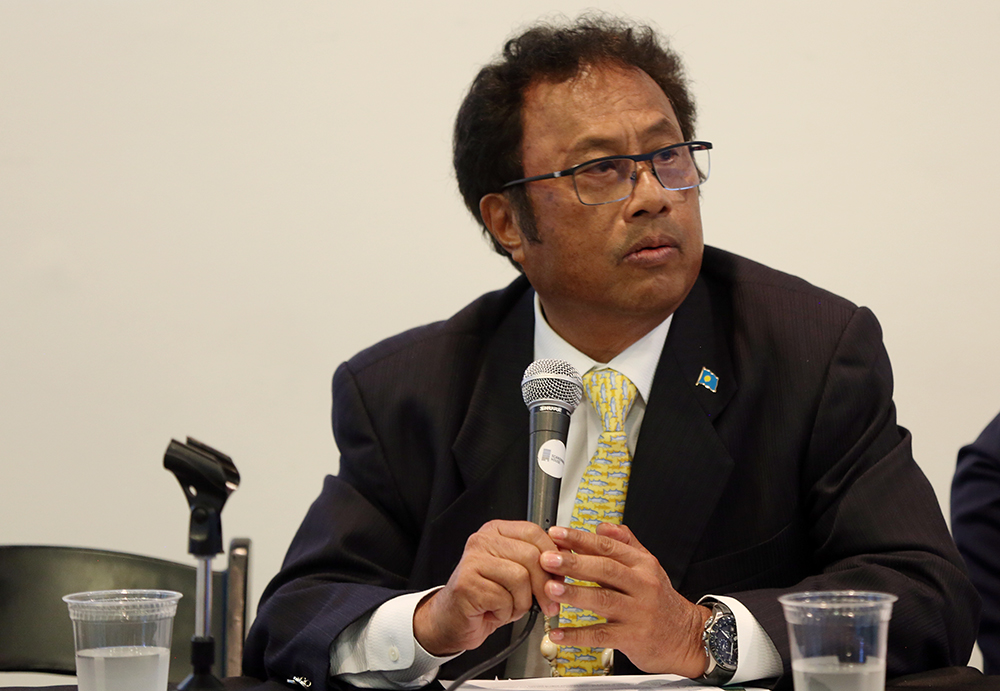
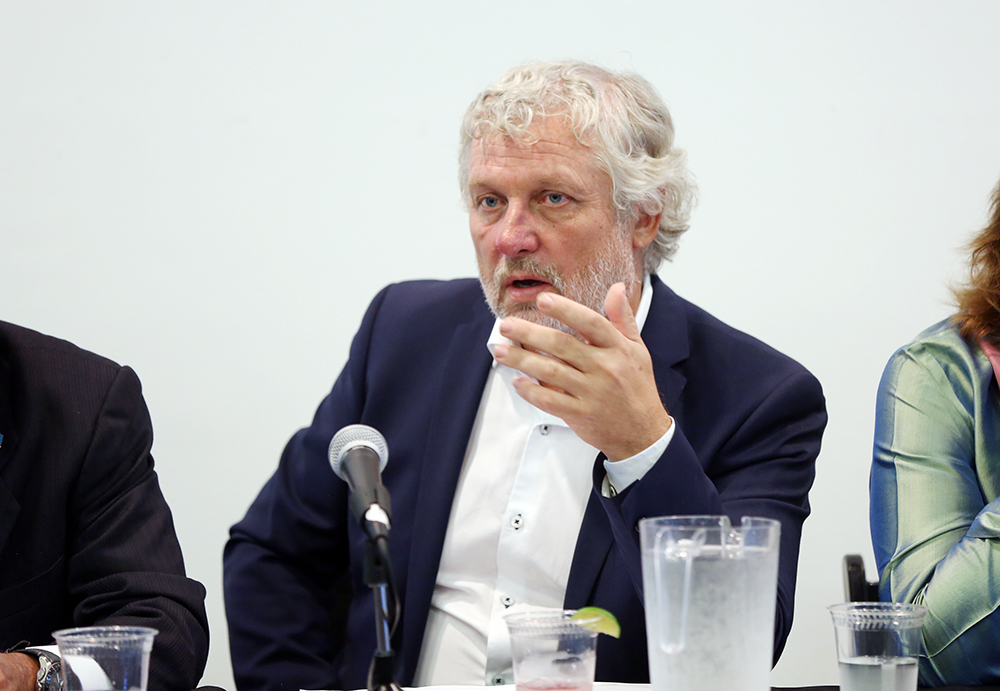
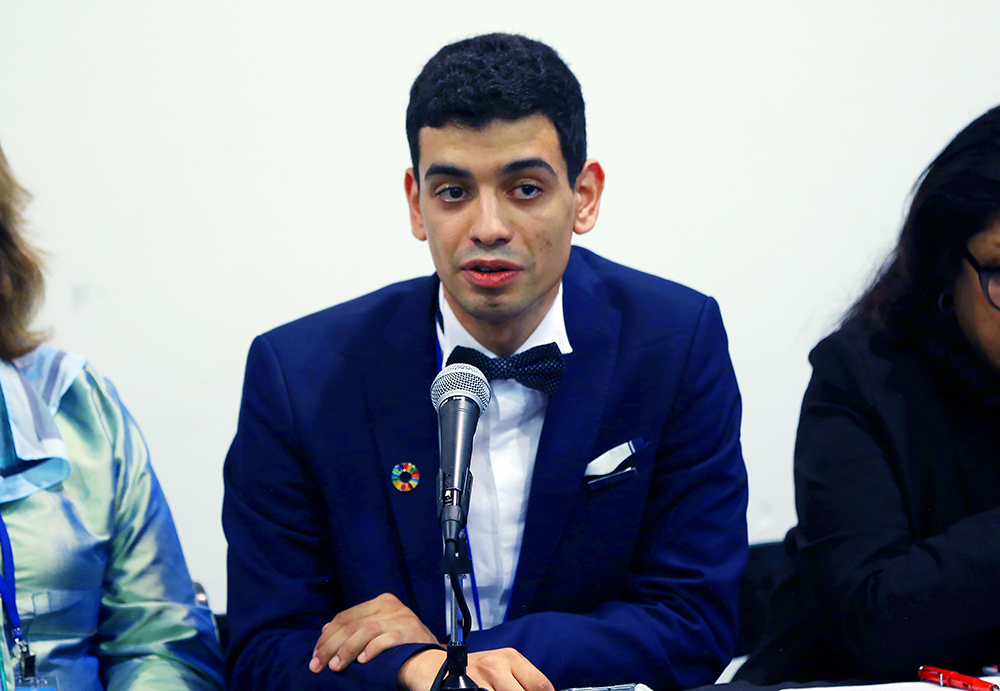
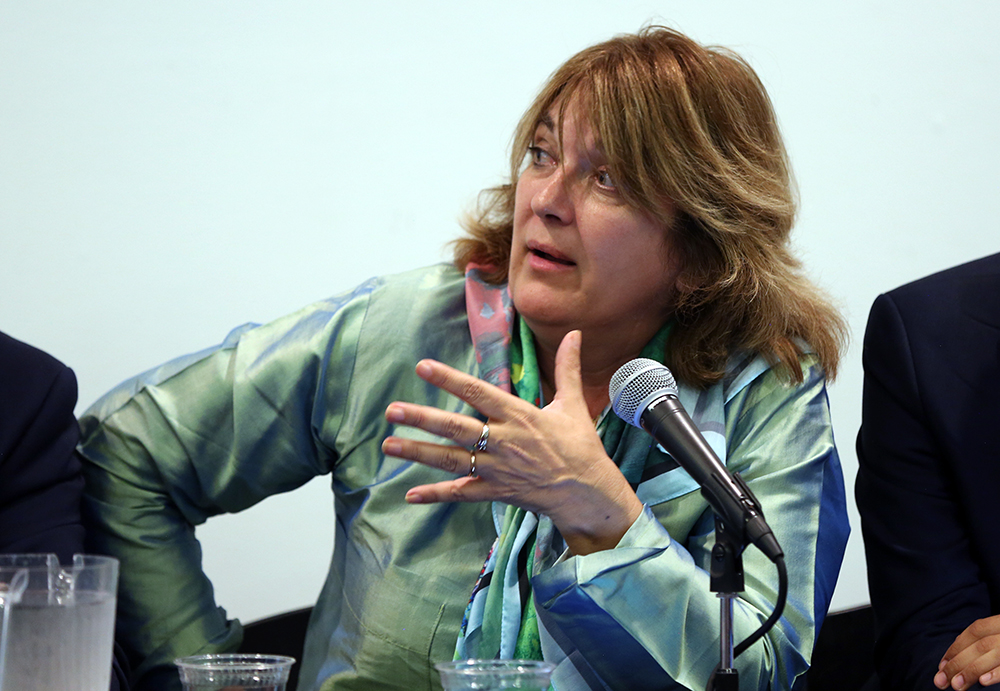
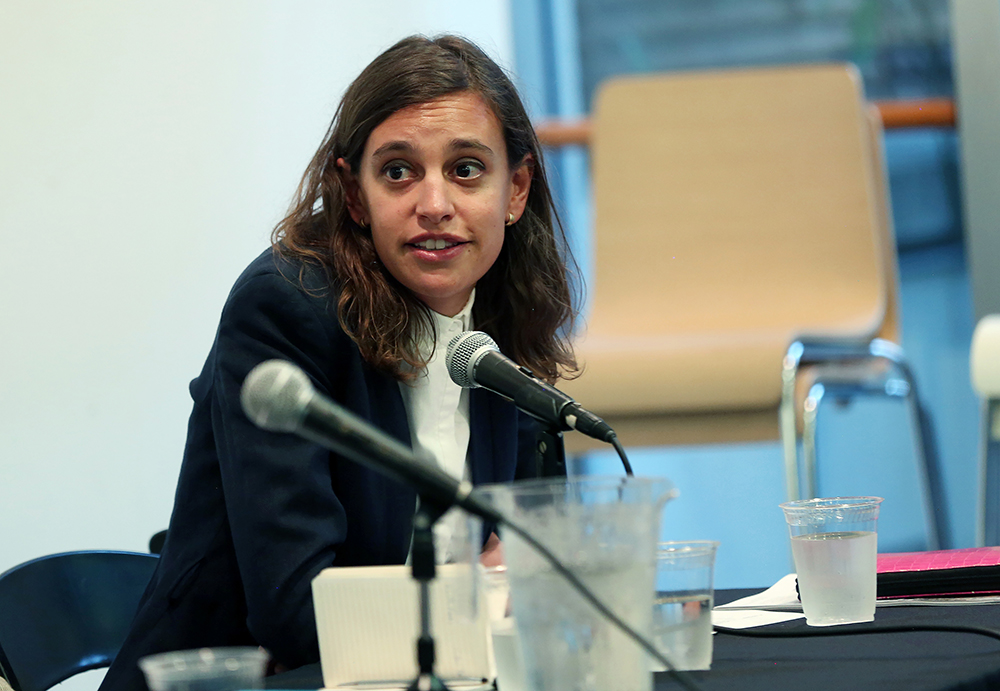
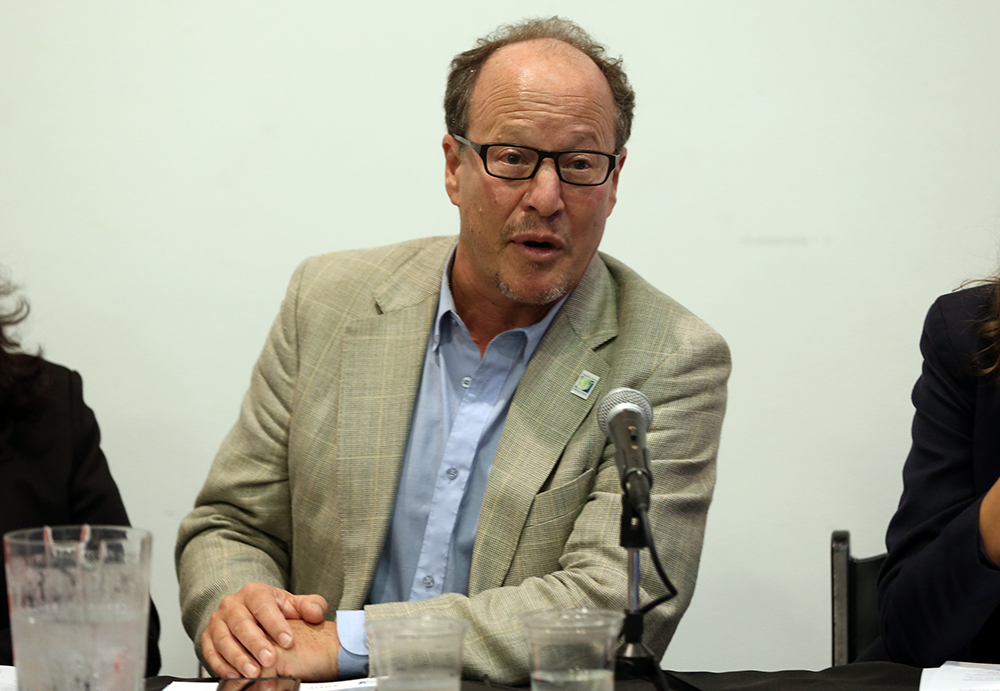
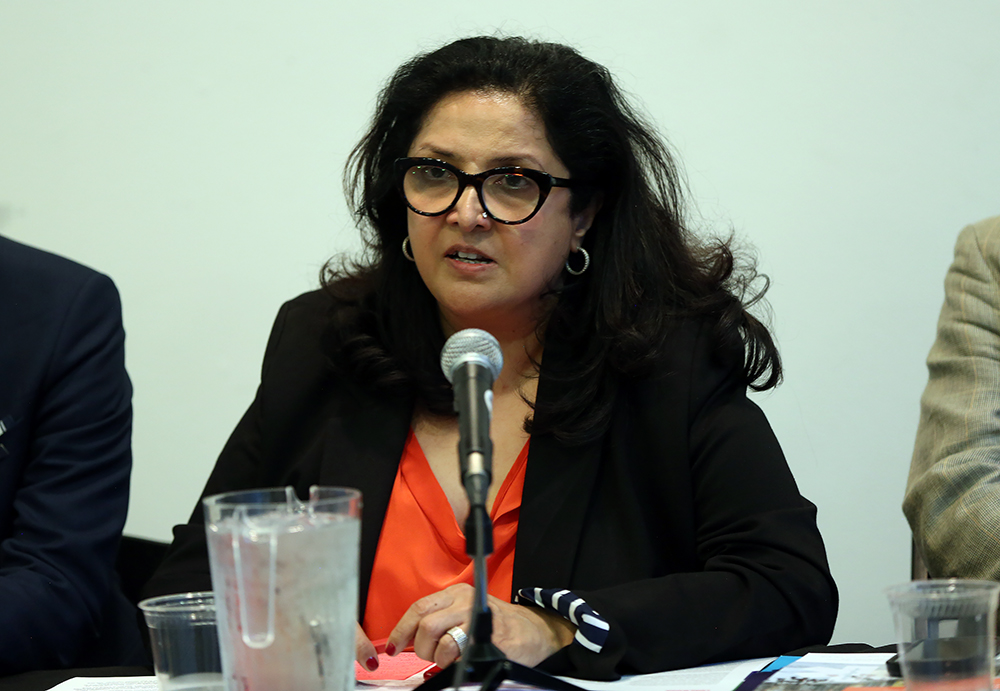
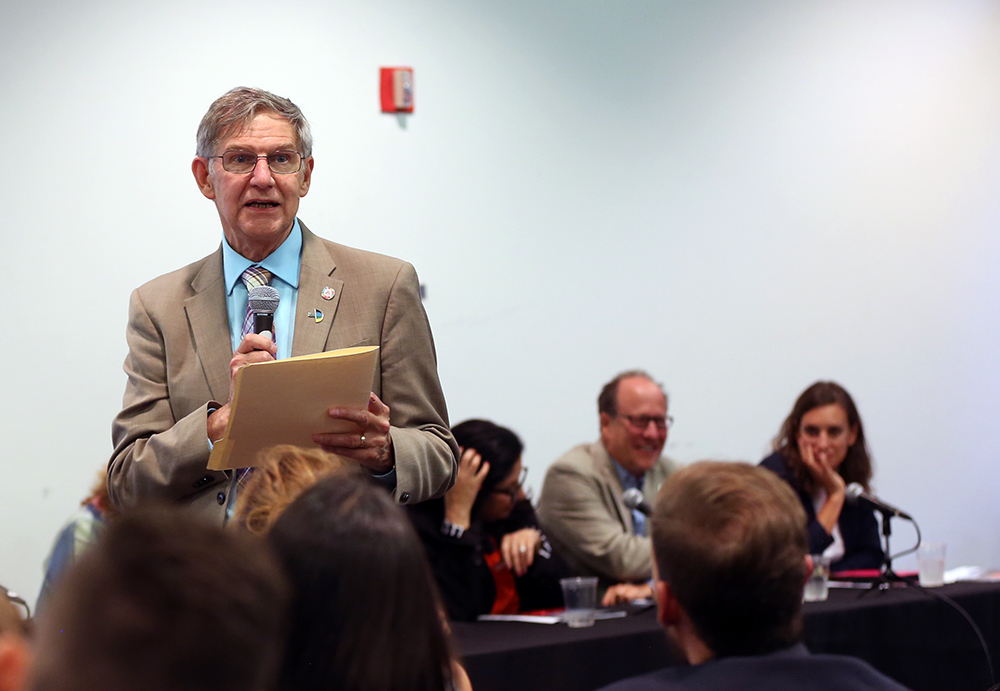
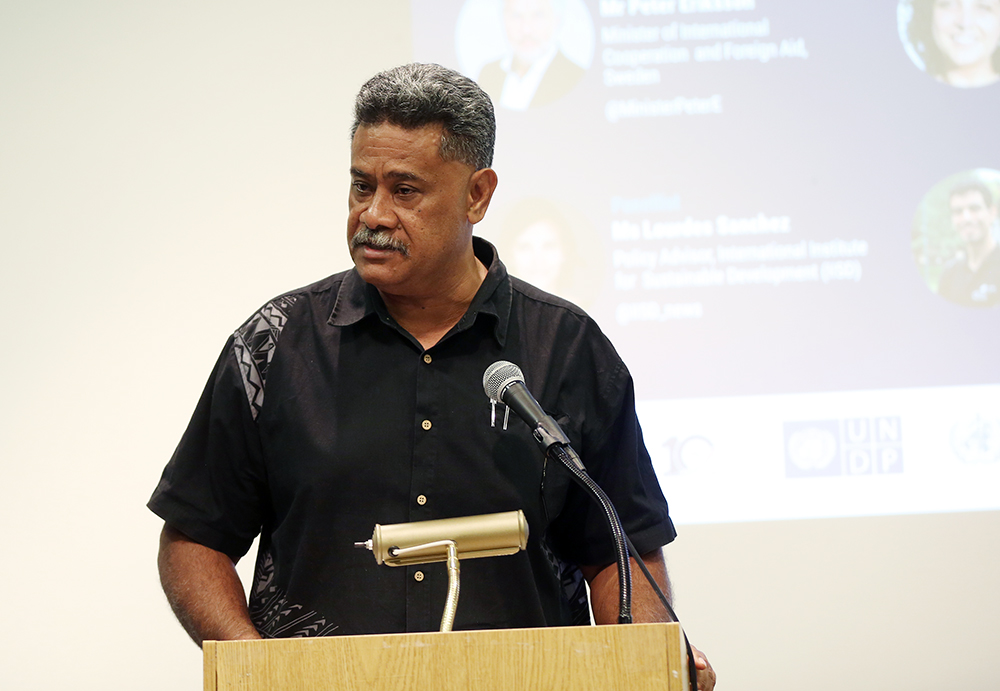
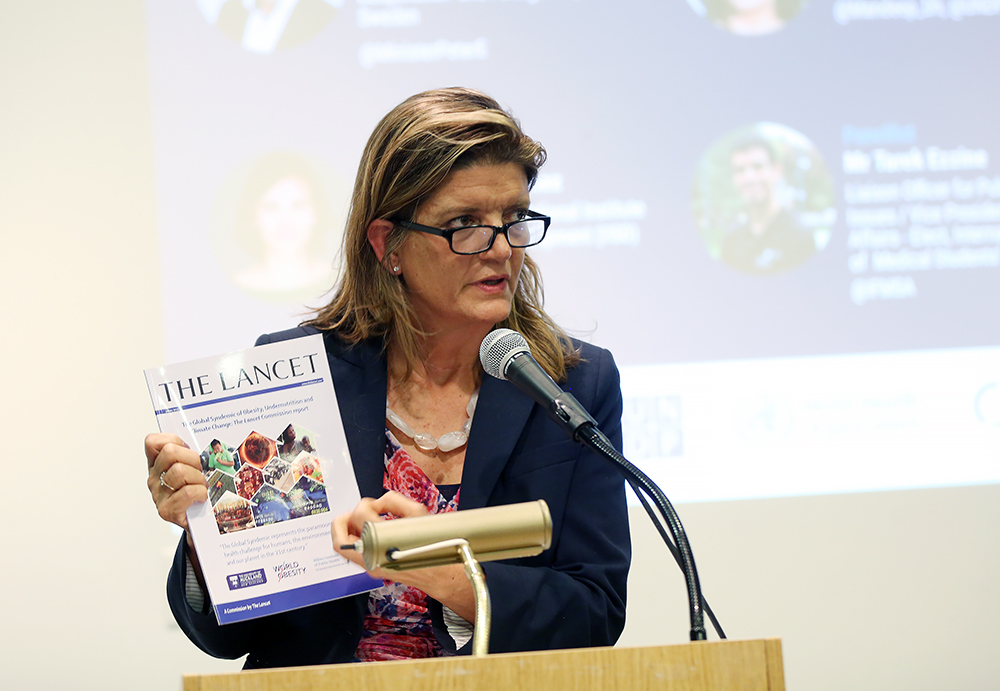
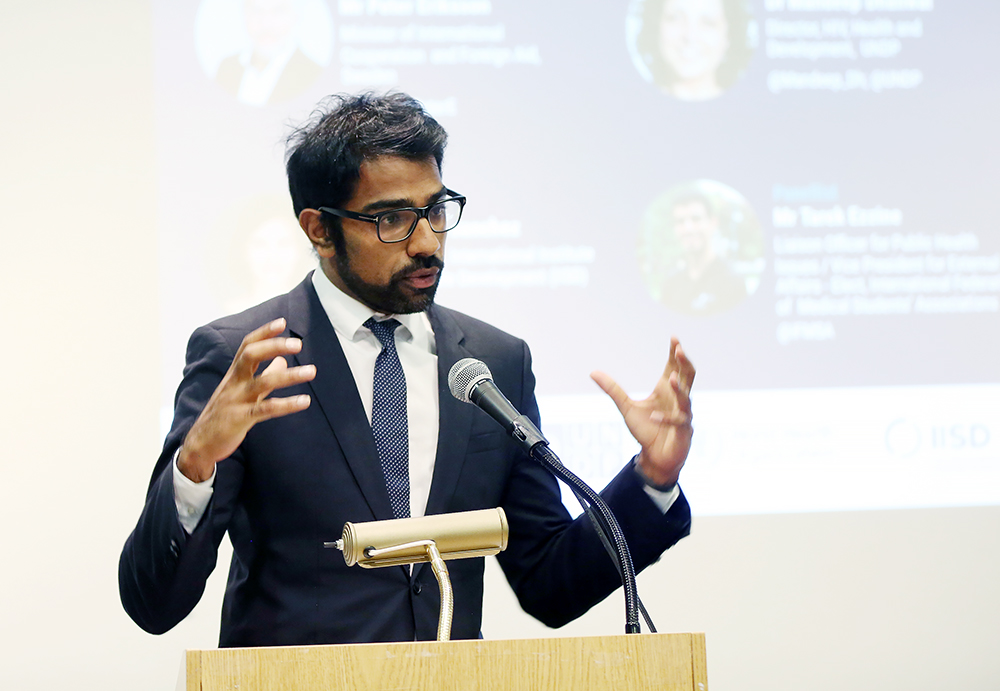
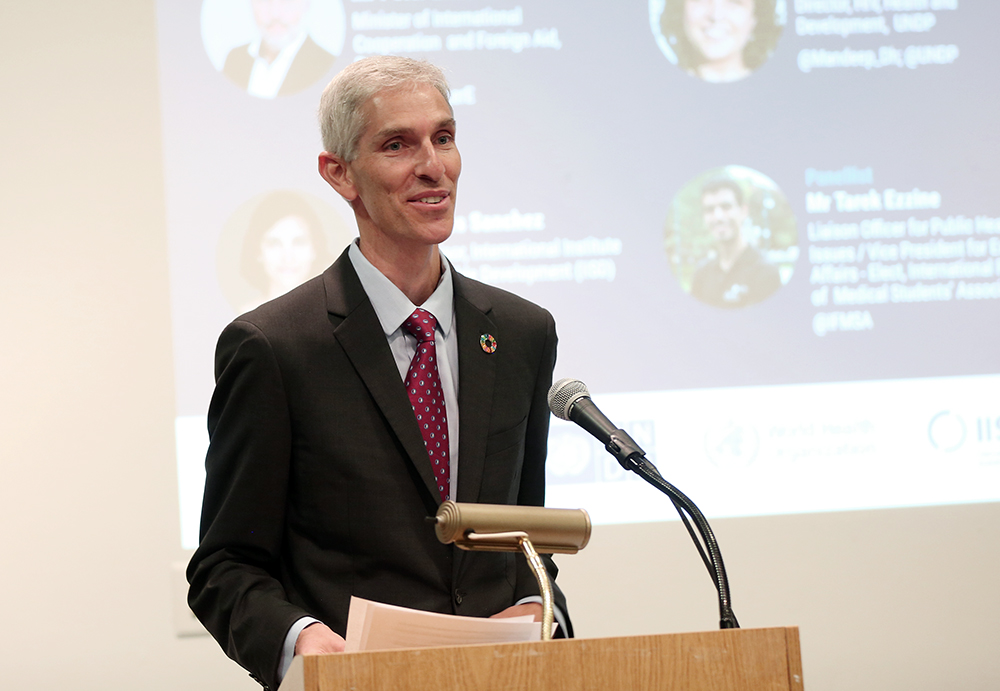
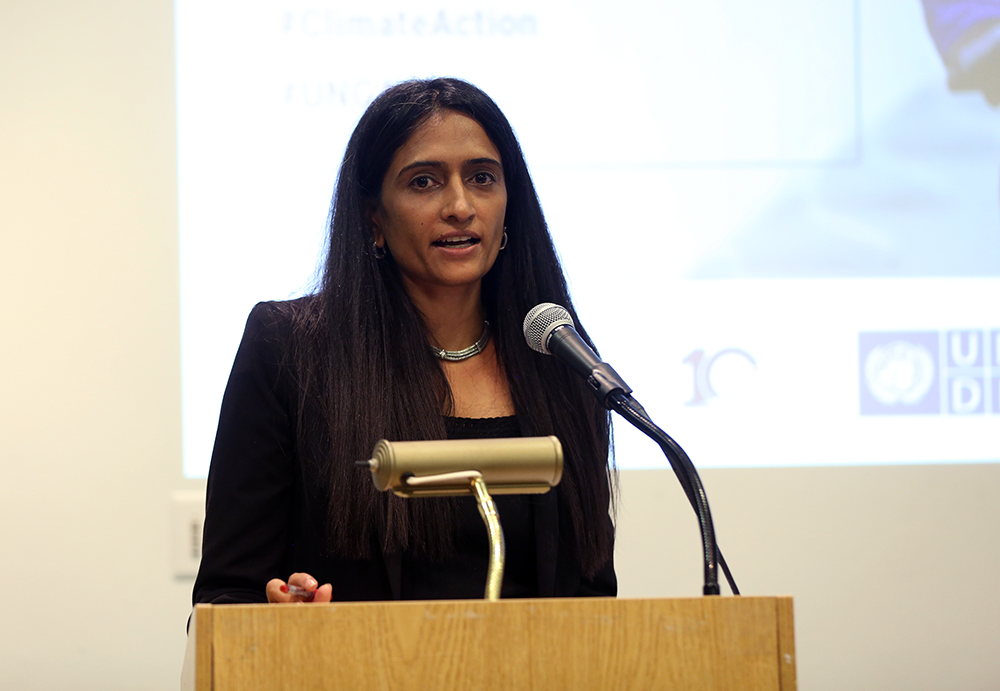
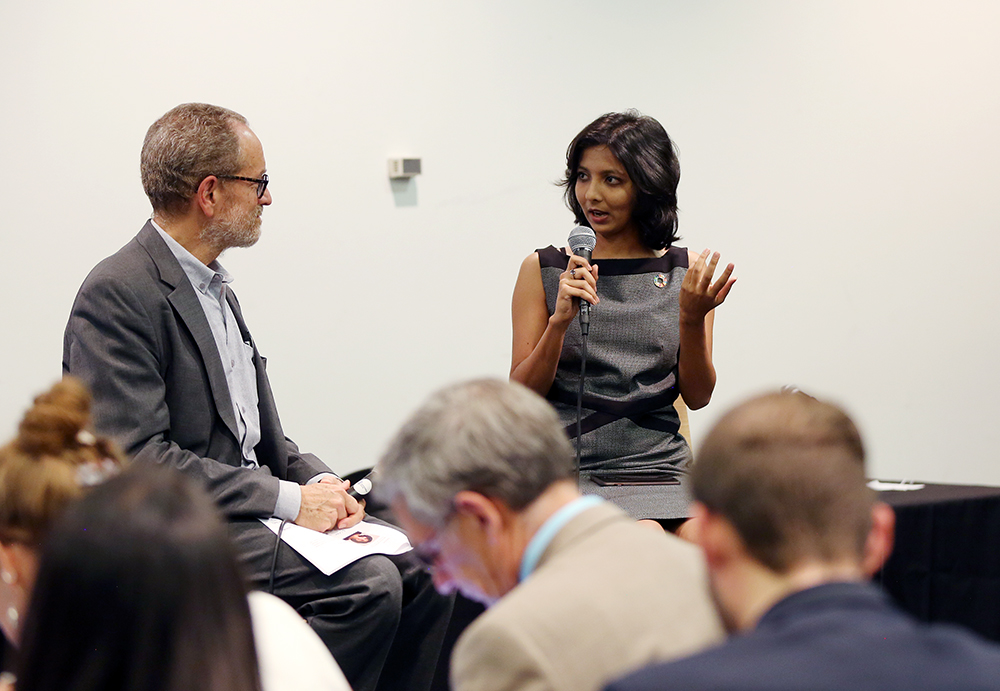
CONTACT
Priya Kanayson | pkanayson@ncdalliance.org